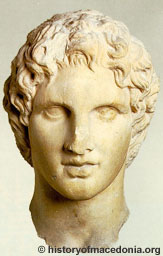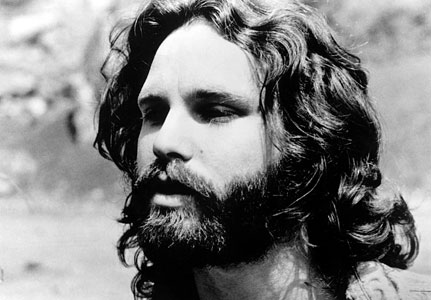The origin of this piece lies in an online discussion I had with my friend Isabelle Hausser, who is an author & translator (http://petitseigneur.com/category/auteur/), about the English translation of the title of one of my favourite films, Le Feu Follet, directed by Louis Malle. To give the film an English title, it has been translated as The Fire Within, which is a) meaningless & b) misses the point completely. 'Le feu follet' is French idiom which has an exact English equivalent idiom: it means 'will-o'-the-wisp', that is, the light produced by burning marsh-gas in bogs & marshes. There is also an exact Latin equivalent, which is sometimes used in English as well: ignis fatuus. Eugene Ehrlich, in his dictionary of Latin tags & phrases Nil Desperandum, gives an illuminating definition:
"Ignis fatuus - will-o'-the-wisp
literally 'foolish fire', signifying any misleading or deluding goal, is so called for the phosphorescent light sometimes seen at night above marshy ground & thought to be caused by the combustion of methane rising from decaying vegetable matter. Anyone who attempts to follow such light is misled, hence the meaning 'will-o'-the-wisp'."
Chambers Dictionary reinforces the point:
"ignis fatuus, n will-o'-the-wisp, the light produced by combustion of marsh-gas, which may lead a traveller into danger; any delusive ideal or hope that may lead one astray."
Now, Rochester uses the term ignis fatuus as the basis of an extended image near the start of his Satyr Against Reason & Mankind, which got me thinking about that magnificent poem, one of the greatest in the English language, and about its author, pictured below ......
"Were I (who to my cost already am
One of those strange, prodigious creatures, man)
A spirit free to choose, for my own share,
What case of flesh & blood I pleased to wear,
I'd be a dog, a monkey, or a bear,
Or anything but that vain animal
Who is so proud of being rational."
- John Wilmot, 2nd Earl of Rochester, A Satyr Against Reason & Mankind, ll.1-7, c.1675
"Tout le monde connaît de réputation le comte de Rochester. M. de Saint-Evremond en a beaucoup parlé; mais il ne nous a fait connaître du fameux Rochester que l'homme de plaisir, l'homme à bonnes fortunes; je voudrais faire connaître en lui l'homme de génie et le grand poète."
["Everyone knows the Earl of Rochester by reputation. M. de Saint-Evremond has talked about him a lot; but he has only made the famous Rochester known to us as the man of pleasure, the successful womaniser; I want to introduce him as the man of genius & the great poet." - trans. MTB, with the assistance of IH.]
- Voltaire, Lettres Philosophiques, 21st Letter, 1734: showing that, at least in France, Rochester was well known 50 years after his death.
"Watch out now -
Take care - beware - of falling swingers
Dropping all around you -
The pain that often mingles in your fingertips -
Beware of darkness !"
- George Harrison, Beware of Darkness
"If my poetry aims to achieve anything, it's to deliver people from the limited ways in which they see & feel."
- Jim Morrison, Wilderness: the lost writings of Jim Morrison p.2
Have you come across the Earl of Rochester ? He was the subject of the film The Libertine, in which he was played by Johnny Depp: http://www.imdb.com/title/tt0375920/ He was a sort of 17th Century Jim Morrison: I make this comparison not facetiously but advisedly; because I think the characters & careers of each man cast light on those of the other. Both were wild, & their wildness - joyous & transgessive at first - turned sour with horrible rapidity, before killing them: Rochester at 33 & Jim at 27. Both were confirmed alcoholics: both determined & successful womanisers; both remarkably excessive in eras when excess was tolerated, even de rigeur, even celebrated; both charming, profoundly troubled & possessed of a dark view of life. Rochester & Jim were both also drawn to obscenity in their work, in a way that is still confrontational & hard to take. Byron was too, but the two poets we are considering here were to an even greater extent. I think they were so partly because they were interested in transgression not as a nice literary theory but in practice, for real. Rochester for instance wrote the starkest account of impotence in English, called The Imperfect Enjoyment. In 72 lines he focuses mercilessly on an episode of premature ejaculation of his own with a sort of horrified relish. As he writes, after it has become apparent that it is not going to happen:
"But I, the most forlorn, lost man alive,
To show my wished obedience vainly strive ....
Trembling, confused, despairing, limber, dry
A wishing, weak, unmoving lump I lie."
(- ll. 25-6, 35-6)
Earlier, he describes what led him to come prematurely:
"A touch from any part of her had done't:
Her hand, her foot, her very look's a cunt."
- ll.17-8
"Her very look's a cunt" is a profoundly Morrisonian line. In the same way, when Jim drunkenly stumbled on stage at the invitation of Jimi Hendrix at the Scene Club in New York, where the latter was jamming after hours & had brought along his tape-recorder, in March 1968, Jim's screamed obscenities on this occasion remind me irresistibly of Rochester:
"Fuck her up the asshole ! Little woman ! Little pussy !"
It's not nice, is it ? It's not decorous. It's like an ugly scar on the face of this whole essay, & once seen it's hard to forget that disfigured countenance. My impulse at least is to shudder & turn away. On the one hand, it's a dark truth which is there in us - on the other there's a violence & hostility which is unsettling & distasteful to say the least. I'm not defending Rochester & Jim, I'm not saying 'Oh, it's Art, darling, so it's alright.' Nor am I sniggering & saying 'Oooh, he said a rude word !' I'm just saying that in their urge to confront they really did, & do. If the urge to confront is going to mean anything, it has to go too far. You can't transgress in safe limits. Eroticism is inherently dark & weird. Why does this matter ? Because erotic feelings are very, very powerful & are so often suppressed, perverted & channelled ....... into militarism, into the lust for political, ideological or religious power & domination. Which strict Protestant magistrate does not want to abandon himself to the same sin as the fornicator he is punishing ? Which persecuting puritanical Inquisitor is not secretly tormented by lust and/or the forbidden temptations of heresy ? Why else would he want to burn people ? He wants to burn them because his self-hatred is their fault ! If he can only stamp them out, finally & forever ...... he might know some peace .... but now they must die - Die !
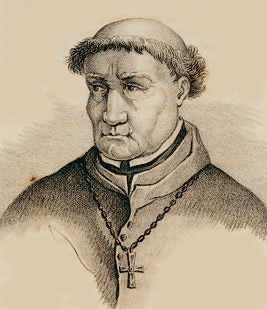
Tomas de Torquemada (1420-98), head of the Spanish Inquisition in the 15th Century.
Perhaps Jim at The Scene Club that night was simply behaving like a drunken lout. He did at times. The other Doors dreaded this side of his personality showing itself, & they even had a name for it - Jimbo. But why did Jim drink so much ? - so much that it must be a major contributory factor in his early death. Partly because he was unhappy, partly because he was an alcoholic pure & simple. But Jim himself also wrote an explanation. However much we may view this as a rationalisation, I think we should take it seriously:
"Why do I drink ?
So that I can write poetry.
Sometimes when it's all spun out
and all that is ugly recedes
into a deep sleep
There is an awakening
and all that remains is true.
As the body is ravaged
the spirit grows stronger.
Forgive me Father for I know
what I do.
I want to hear the last Poem
of the last Poet."
- from Wilderness: the lost writings of Jim Morrison p.119
Robby Krieger, the master guitar-player of The Doors, has many insightful things to say about the band, that period in history, & about music. Here is one of his key pieces of opinion about Jim, from the Classic Albums series documentary on The Doors' eponymous first album:
"It WAS difficult, y'know, many times I said, 'Why can't he just be a regular guy ?'. I mean, y'know, you can still write great songs & not be so crazy &, y'know, go & do these weird things, but then again I knew that - No: you can't [laughs in recognition at the truth of what he's saying]. Guys like that are the ones that, they kind of set the boundaries for the rest of us, y'know ?"
- Classic Albums The Doors The Doors, ch. 7
Jim himself also has the following to say on the subject in his collection of observations called The Lords, which he self-published in 1969:
"More or less, we're all afflicted with the psychology of the voyeur. Not in a strictly clinical or criminal sense, but in our whole physical and
emotional
stance before the world. Whenever we seek to break this spell of passivity, our actions are cruel and awkward and generally obscene, like an invalid who has forgotten how to walk."
- The Lords: Notes on Vision, p.13
Incidentally, I got quite a shock one afternoon when I read the blurb on the back of the Omnibus Press edition of The Lords/The New Creatures, which is the one I have. Whoever wrote it has it absolutely spot on in the first paragraph, I couldn't put it better myself:
"Jim Morrison was one of the most erudite & widely read of all rock stars, whatever demons inhabited his anguished soul. The name of his group The Doors was inspired by the writings of William Blake & Aldous Huxley, & the lyrics he wrote & sang bear witness to his fertile gift for rich, mysterious imagery. Much of this was overlooked amid the colourful, controversial & decadent life that Morrison chose to lead."
Exactly. To amplify that point about Blake & Huxley, the name The Doors is a deliberate & conscious double reference first to Aldous Huxley, & through him to Blake. Huxley wrote a book in 1954 called The Doors of Perception about his experiences with the hallucinogenic mescaline, & his title there is a reference to a piece of Blake, in The Marriage of Heaven & Hell (c.1793):
"If the doors of perception were cleansed, every thing would appear to man as it is, infinite.
For man has closed himself up, till he sees all things thro' narrow chinks of his cavern."
- I have no line reference for this, it's in the middle more or less, you'll just have to find a copy & look it up yourself !
To give some context in English literature for Rochester & Jim's use of obscenity, I would cite Shakespeare's fondness for using double entendres. Shakespeare likes using puns generally, which are now regarded as a very low form of humour, & double entendres are puns where the second term referred to, as opposed to the immediate surface meaning of the word, is a sexual one. The English love them, now certainly & then presumably, otherwise why would Shakespeare use them so insistently ? One example is from Hamlet where Hamlet is teasing Ophelia aggressively as they are talking before the play-within-the-play starts in Act 3:
"Hamlet: Do you think I meant country matters ?"
- 3.2.115
The first syllable of 'country' carries the deliberate implication of 'cunt' here. In other words, it is an obscene pun. Another example comes in Twelfth Night, when Malvolio spells out letters from the message purporting to be from Olivia with which he is being tricked. Recognising the handwriting as being (as he thinks) Olivia's, he says:
"Malvolio: By my life, this is my lady's hand: these be her very C's, her U's, her T's ....."
- 2.5.87
Thus spelling out CUT, which for an Elizabethan audience was the equivalent of our 'cunt' i.e. an obscene colloquialism for 'vagina'; to the Elizabethans 'cut' & 'cunt' were interchangeable. Shakespeare was so keen for the audience not to miss this one that he has Sir Andrew Aguecheek repeat it without understanding it - more hilarity - 2 lines later. To make the effect on a modern audience that it had on its original audience, the actor could easily substitute:
".... these be her very C's, her U's, her N's, her T's."
You get the point. Another example from Twelfth Night comes when we first meet Sir Toby Belch & his gull, Sir Andrew Aguecheek. They have the following exchange, culminating in a piece of smut which requires no further amplification:
"Sir Toby: Then hadst thou had an excellent head of hair.
Sir Andrew: Why, would that have mended my hair ?
Sir Toby: Past question, for thou seest it will not curl by nature.
Sir Andrew: But it becomes me well enough, does't not ?
Sir Toby: Excellent, it hangs like flax on a distaff; & I hope to see a housewife take thee between her legs, & spin it off."
- 1.3.94-101
Oooooooer ! But although coarse, this is not offensive: it is main stream English humour which we can trace down to for instance the comic songs of George Formby in the 1930s, or to the sitcom Are You Being Served ? in the 1970s. This kind of humour was omnipresent when I was growing up. For instance in George Formby's most famous song, When I'm Cleaning Windows, in the persona of a window cleaner looking through a hotel window he sings:
"The blushing bride she looks divine -
The bridegroom he is doing fine -
I'd rather have his job than mine !
When I'm cleaning windows."
(Oddly, & in passing, Jim & George Formby's songwriter Jack Cottrell use exactly the same device in one of each of their songs. It is where an innocuous word is substituted for the rude word which the rhyme demands. This has two consequences; the singer is spared the opprobrium of using an obscene term, while the audience understands perfectly well what word is intended, & in fact it is emphasised, though not stated directly. The lyrics in question are, for George Formby:
"Now Mr Wu, he's got a naughty eye that flickers
You ought to see it wobble when he's ironing ladies' - blouses !"
- Chinese Laundry Blues, George's breakthrough hit.
For Jim:
"C'mon people, don't you look so down
You know the Rainman's coming to town
He'll change your weather, change your luck
& then he'll teach you how to - find yourself !"
- L'America, from L.A.Woman)
Shakespeare could not resist using double entendre even at the most solemn moments, eg. when in Hamlet Gertrude is announcing Ophelia's suicide:
"Gertrude: Therewith fantastic garlands did she make
Of crow-flowers, nettles, daisies, & long purples,That liberal shepherds give a grosser name,
But our cold maids do dead men's fingers call them."
- 4.7.167-70
Another example is in Antony & Cleopatra when Cleopatra is reacting to Antony's death just after it has happened:
"Cleopatra: O, wither'd is the garland of the war,
The soldier's pole is fall'n ...."
- 4.15.64-5
where 'pole' means both Antony's standard & his erection, by extension his virility.
Time has been kind to Shakespeare. Its effects have made him seem more elevated & less of a crowd-pleaser as a writer/dramatist than he really is. His work is like an old painting whose colours now are not what they were when it was first painted. The effect of time on Shakespeare's work has been to emphasise the poetry & soften the obscenity: the latter has to be explained now and, like any joke, if it has to be explained it has lost almost all if not all its force. With Rochester & Jim on the other hand the obscenity is still raw, fresh, immediate. I hope I have shown that obscenity is not merely present in but actually integral to Shakespeare's work: & no one I think would dispute that Shakespeare is a serious & important writer.
Given Shakespeare's cultural dominance, & the change in mores & ideas of what is & is not acceptable, it was probably inevitable that expurgated editions of his plays would appear. The most famous of these was by Thomas Bowdler, first published in 1807 & reprinted many times thereafter; as an advertisement for the 1819 edition stated:
"The Family Shakespeare: in which nothing is added to the original text: but those words & expressions are omitted which cannot with propriety be read aloud in a Family."
As if that was a criterion of literary excellence. Bowdler has given his name to the verb to bowdlerise, which is usually used contemptuously, meaning to censor for over-scrupulous or repressive or generally uptight reasons; also carrying the implication, to distort, for the same reasons. We should be careful of condescending to Bowdler & the audience for his editions however. We might not want to censor Shakespeare for reasons of indelicacy, because we're so ace & so much more enlightened than the 19th Century middle class on this point; but I would say the urge or temptation to cut Shakespeare to fit our ideas of what can & can't be done & said is as strong as ever, but for different reasons. Think of the plot of The Taming of the Shrew. Bowdler only seems ridiculous - he is ridiculous - because his motives to censor are not ours. We would censor, I would suggest, for reasons of - among others - racism, sexism, misogyny, homophobia, paedophilia, & the catch-all, taste & decency.
John Lennon sometimes used obscenity for emphasis in his songwriting, justifiably in my opinion. Working Class Hero occurs to me as a good example:
"Keep you doped with religion, & sex, & TV
And you think you're so clever & classless & free
But you're still fucking peasants as far as I can see."
You could omit the 'fucking' there & substitute for instance 'a load of' which has the same rhythmic value. But it doesn't have the same force, does it ? Another example in recent English literature of the use of obscenity to make a political point is the poem American Football by Harold Pinter.
Some may call it crude & simplistic, even adolescent - he was 60 when he wrote it in 1991 - but you can't deny it's direct & to the point:
"American Football
A reflection upon the Gulf War
Hallelujah !
It works.
We blew the shit out of them.
We blew the shit right back up their own ass
And out their fucking ears.
It works.
We blew the shit out of them.
They suffocated in their own shit !
Hallelujah.
Praise the Lord for all good things.
We blew them into fucking shit.
They are eating it.
Praise the Lord for all good things.
We blew their balls into shards of dust,
Into shards of fucking dust.
We did it.
Now I want you to come over here and kiss me on the mouth."
What Pinter calls in 1991 The Gulf War we now know was the First Gulf War. To anyone shocked by Pinter's total breech of literary decorum here, his obvious retort is: "You think this is obscene ? What about all the killing in the war ? I'm using obscene terms to describe an obscenity; so in fact the language is entirely fitting."
Jim actually appeared on stage as one of the leads in Pinter's The Dumbwaiter when he was an undergraduate at Florida State University in 1963. The recollections of this by his fellow student Keith Carlson, who appeared opposite him, ring true with the Jim we know later from the days when he was famous; & show his transgressive nature goes right back to his early manhood:
"Every night waiting for the curtain to go up, I had no idea what he was going to do. He was difficult to key on, because he tended to play the role very differently all the time. He wasn't keying on me, or on dialogue, or on any of the traditional things. He played scenes & delivered lines with an inflection that seemed totally unmotivated, or at least unexpected. There was a constant undercurrent of apprehension, a feeling that things were on the brink of lost control. Back in those days, everyone was uptight about any obscenity on stage, but we had some wonderfully obscene rehearsals. There was no obscenity during any of the performances, but with Jim, we just never knew."
- quoted in The Lizard King: The Essential Jim Morrison by Jerry Hopkins, p.44.
Having taken this aspect of Rochester & Jim's work head on - it would be dishonest & falsely scrupulous to ignore or gloss over it - it is only an aspect of their work. Both were poets of considerable talent to say the least. Any fool can get drunk & scream obscenities into a microphone. That on its own would have an impact & a shock value of about 20 seconds, before being forgotten, & the screamer with it. Yet the work of The Doors is still resonating - & still selling steadily ! - 40 years after they disbanded. Why ? Partly because not any fool can write the following:
"What have they done to the earth?
What have they done to our fair sister?
Ravaged and plundered and ripped her and bit her
Stuck her with knives in the side of the dawn
And tied her with fences and dragged her down ...."
- Jim Morrison, When the Music's Over
"Stuck her with knives in the side of the dawn" is a superb image, as good as anything in the whole of 20th Century poetry in English that I'm aware of. Similarly with Rochester, any idiot can use forbidden language to shock, not any idiot can wield a couplet like this:
"This plain distinction, sir, your doubt secures:
'Tis not true reason I despise, but yours."
- A Satyr Against Reason & Mankind, ll.110-1
All the weight of the couplet falls on yours: it's like a sudden jab of the fore-finger, extended to stress the point. This bears comparison with anything in Pope.
So Rochester & Jim were both great poets (more evidence on this to come) in this critic's opinion. But I'm throwing around these terms poet & poetry like we all know & agree what they mean. Poet is simple enough: it's one who writes or produces poetry; so it is with the second term that the problems of definition lie. [Reader (incredulously): You're going to define poetry in a paragraph !??! Matt: Well, I'm going to try.] One quote on the subject of what is poetry ? always occurs to me. It is by W.B.Yeats (I am not in the main an admirer of Yeats as a poet):
"We make out of the quarrel with others, rhetoric, but out of the quarrel with ourselves, poetry."
- W.B.Yeats, n/d
That is unutterably brilliant. Here is what I have to say on the matter. Poetry, like drama, summarises & concentrates events & emotions. It refines them to produce - when it works - their essence. This essence is powerful. The process is like alchemy or distilling - you refine & refine until the product is just right. The particular flavour of the product depends on the ingredients, which are the feelings of the poet & how his/her mind inflects them.
To finish, I propose to exemplify the work of each poet by examining in detail a magnum opus by each man. For Rochester, A Satyr Against Reason & Mankind, which we have had glimpses of so far. It was finished in 1675 or 6, when he was between 27 & 29; the exact date of any piece of Rochester's work is unfortunately nearly always approximate. For Jim, The End, released in its finished form in 1967, when he was 23. I note here that Rochester's poem is by him solely, & comes from the page; whereas The End comes through the speakers, & is a collaborative work by The Doors. The other members of The Doors were:
The Doors had no regular bass player. Instead, Ray Manzarek played bass on a Fender Rhodes keyboard bass when they played live. For recording, they used session bass players.
Here is a picture of the 4 of them together:
The Doors' breakthrough hit Light My Fire is a perfect example of the four of them in collaboration. Robby wrote the basic song, that is the chords for the verse & the chorus, & wrote the words for the 1st verse. Jim wrote the words for the 2nd verse. Ray then wrote the distinctive organ intro. John put drums to it, Ray & Robby wrote their respective solos, et viola. However the words & the delivery of The End are Jim's. You could argue that a poem delivered aloud to musical accompaniment is not an innovation or lesser form but in fact a return to the way poetry was performed throughout most of human history; that the poem on the page is the aberration, the recent temporary phenomenon. However that may be, let us look in detail at Rochester's A Satyr Against Reason & Mankind. You can find a full text of it here: http://www.social-exclusion-housing.com/satire-against-reason-and-mankind.html
I am going to quote a long section which follows directly from the first lines quoted at the start of this essay, where R uses the ignis fatuus as the basis of an extended metaphor about his contempt for human Reason, which he regards as equally delusive. I have little to say about this, it speaks for itself, except to point out how beautifully it builds.
"The senses are too gross, & he'll contrive
A sixth, to contradict the other five,
& before certain instinct, will prefer
Reason, which fifty times for one does err;
Reason, an ignis fatuus in the mind,
Which, leaving light of nature, sense, behind
Pathless & dangerous wandering ways it takes
Through error's fenny bogs & thorny brakes;
Whilst the misguided follower climbs with pain
Mountains of whimseys, heaped in his own brain;
Stumbling from thought to thought, falls headlong down
Into doubt's boundless sea, where, like to drown,
Books bear him up awhile, & make him try
To swim with bladders of philosophy;
In hopes still to o'ertake th' escaping light,
The vapour dances in his dazzling sight
Till, spent, it leaves him to eternal night.
Then old age & experience hand in hand,
Lead him to death, & make him understand,
After a search so painful & so long,
That all his life he has been in the wrong.
Huddled in dirt the reasoning engine lies,
Who was so proud, so witty, & so wise."
- ll.8-30
Devastating. You may not agree with it, but you can't deny it's powerfully put. Later in the poem, Rochester imagines a learned clergyman - "some formal band & beard" (l.46) - taking him to task. His opponent asks:
"What rage ferments in your degenerate mind
To make you rail at reason & mankind ?"
- ll.58-9
The clergyman then goes on to object that Man is made in the image of God, & God has given him an everlasting soul, & Reason "to dignify his nature above beast" (l.65). Rochester is having none of it:
"This supernatural gift, that makes a mite
Think he's the image of the infinite,
Comparing his short life, void of all rest,
To the eternal and the ever blest;"
- ll.76-9
The first 2 lines there exemplify a great feature of A Satyr Against Reason & Mankind; it is full of profound insights elegantly put; it is almost impossible to forget them having once encountered them. There follow some examples from later parts of the poem. I have given a slightly longer quote in each case than the particular bit I mean so you've got some context. I've put what I consider the striking, memorable lines in italics.
"Be judge yourself, I'll bring it to the test:
Which is the basest creature, man or beast ?
Birds feed on birds, beasts on each other prey,
But savage man alone does man betray."
- ll.127-130
"For hunger of for love they [i.e. beasts] fight & tear,
Whilst wretched man is still in arms for fear.
For fear he arms, & is of arms afraid,
By fear, to fear, successively betrayed."
- ll.139-142
Is not that last couplet there the exact inner dynamic of the nuclear & conventional arms race between the US & the USSR during the Cold War ?
"& honesty's against all common sense:
Men must be knaves, 'tis in their own defence.
Mankind's dishonest; if you think it fair
Amongst known cheats to play upon the square,
You'll be undone.
Nor can weak truth your reputation save:
The knaves will all agree to call you knave.
Wronged shall he live, insulted o'er, oppressed,
Who dares be less a villain than the rest."
- ll.159-167
Rochester's final couplet, & his final line, in the poem more than live up to his highest standard. He leaves us with something to ponder:
"If such there be, yet grant me this at least:
Man differs more from man, than man from beast."
- 220-1
I hope this has stimulated you to seek a better acquaintance with the work of the Earl of Rochester. I do not pretend to have done anything other than give a very brief overview of A Satyr Against Reason & Mankind & point out a few highlights. It's a poem you can think about for years. I know because I have.
Now to turn to The End. What is this strange amalgam, unprecedented when it first appeared ? One thing it is most definitely is an incantation, which Chambers Dictionary gives beautifully as:
"n. a formula of words said or sung for purposes of enchantment, a magic spell."
The Doors wrote several long pieces in this same vein - When the Music's Over & Five to One - but The End is the greatest of them just as it is the first. It is a poem in sections, some of which overlap. I mean to examine it closely, to see what we find.
The opening 6 lines are about parting from a beautiful friend, possibly a final parting caused by the poet's death. Or it could be the poet's soul or spirit saying goodbye to his body as he dies. Then we get a question:
"Can you picture what will be ?
So limitless & free"
This could be after death, or after a radical reorientation in consciousness.
"Desperately in need of a stranger's hand"
This could be the poet's state of being, or a general state of being when the song was written, or both. Now we move to some comments on the state of the US when the song was written - a desperate land.
"Lost in a Roman wilderness of pain
& all the children are insane"
Roman because the men who founded the Republic of the US were inspired by their understanding of the Roman Republic before it became an empire. Anyone looking around them in 1967 could see the truth of all the children are insane. It is not an optimistic view of the Love Generation, & perhaps all the more accurate for that. Now we move to a section where it is evident that Jim was familiar with the work of both Freud & Jung.
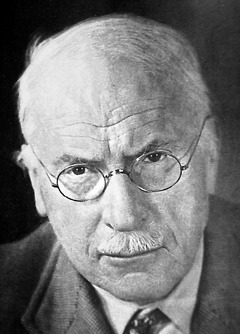 Carl Jung (1875-1961)
Carl Jung (1875-1961)Freud & Jung are the giants of psychoanalysis. Jung was Freud's disciple until 1913, when there was a final breech between them & they became rivals.
Ride the king's highway, baby is very important. It is the point at which the singer starts offering instructions for a journey he is inviting the audience, individually & collectively, to take. By "king's highway", Jim is referring to a very famous statement of Sigmund Freud, from The Interpretation of Dreams (1899) that:
"Dreams are the Royal Road to the Unconscious."
King's highway = Royal Road. Freud is referring not just to any old road, but a very specific road, a road from Classical history, the one that the Persian High Kings built through their empire to facilitate troop movements & above all the communication of messages. Alexander the Great used it at certain times during his invasion & conquest of the Persian empire, for instance before & after the battle of Gaugamela in 331 BCE.
The point of Freud's image is that, in his opinion, the interpretation of dreams will take us to the heart of the Unconscious in the same way as the Royal Road took Alexander to the heart of the Persian empire, a vast & alien territory to Alexander & his army as the Unconscious is to us. It is this aspect of Alexander's use of the Royal Road that Freud has in mind, I think: he is not talking about conquering the Unconscious, he is talking about a defined & available route that opens it up for exploration. All this is evoked by Ride the king's highway, baby, a phrase in very simple words. I want to emphasise this aspect of Jim's images, their incredible economy. We have encountered the same thing before in the complex train of associations lying behind the simple name The Doors. The End is a poem made with deft, sure strokes.
The next line is a statement, not an instruction:
"Weird scenes inside the goldmine."
A striking image, all the more so since its meaning is opaque. I interpret this in 3 ways at once, which I do not regard as exhaustive.
1. Weird scenes in US history, in which goldmines & gold rushes play an important part, e.g. the great rush to California in 1849. I propose this with confidence because Jim refers elsewhere in his lyrics & poetry to US history.
2. The weirdness of modern American affluent life when the song was written, that affluent life being the goldmine.
3. Weird scenes inside Jim's own head, the goldmine from which this Art is coming. His head is a goldmine because what is extracted from it is a) financially valuable, b) artistically valuable, gold in both senses.
"Ride the highway west, baby"
Another instruction. Why west ? (This is crucial). Why not north, south, east or any other direction ? Because west is towards the sunset & towards the Land of the Dead: whether it is an Isle of the Blessed, like Avalon, or otherwise. In other words Jim is urging us to head towards the Land of the Dead in our minds.
"Ride the snake - ride the snake -
To the lake - the ancient lake, baby -"
According to Jung, the snake is a symbol of the Unconscious. As he writes in Aion: Researches into the Phenomenology of the Self (1951):
"By shadow I mean the inferior personality, the lowest levels of which are indistinguishable from the instinctuality of an animal ..... Since the shadow, in itself, is unconscious for most people, the snake would correspond to what is totally unconscious & incapable of becoming conscious, but which, as the collective unconscious & as instinct, seems to possess a peculiar wisdom of its own & a knowledge that is often felt to be supernatural. This is the treasure which the snake (or dragon) guards, & also the reason why the snake signifies evil & darkness on the one hand & wisdom on the other. Its unrelatedness, coldness, & dangerousness express the instinctuality that with ruthless cruelty rides roughshod over all moral & any other human wishes & considerations & is therefore just as terrifying & fascinating in its effects as the sudden glance of a poisonous snake."
- Ch.14, The Structure & Dynamics of the Self , 3, 370
Intertwined snakes also appear on the caduceus, the special winged staff of Hermes / Mercury, which signified his function as herald & which was also his emblem. One of Hermes' attributes is that he is the psychopomp, the guide of the souls of the Dead to the Underworld.
The lake is also a symbol of the Unconscious, it being ancient reinforces this. So Jim is urging us to ride one symbol of the Unconscious towards another. I note here the vivid physical detail of:
"He's old - & his skin is cold."
Again, the incredible simplicity of the language. Cold also relates back to the passage by Jung quoted above.
"The west is the best"
i.e. the Land of the Dead is the best.
"The Blue Bus is calling us"
As to the Blue Bus, I only have a very feeble idea about that: it's partly a bus to the Blues ? I have a strong sense that this is a reference to something I don't know - something from Beat poetry ? Ken Kesey & the Merry Pranksters & their bus ? It will take a commentator who does know to enlighten us both on this point. Next we get to a spoken section which is like a narrated film:
"The Killer awoke before dawn
He put his boots on"
The Killer: this tells us the person is a killer, though whether he is already one or potentially one we don't know. The 2nd line there tells us he is a he - his boots - & is also a vivid visual detail. Also, the sense that he is getting ready for something.
"He took a face from the Ancient Gallery"
I have no suggestions as to what exactly this might mean, nor do I think any are necessary. It is a magnificent image. Unforgettable. The mention of sister & brother in the next lines establish the fact that he is visiting family; it is a build-up.
"He came to a door, he looked inside"
We have followed the Killer's progress, but nothing violent or threatening has yet occurred, though there is perhaps a gradual increase in tension as the listener wonders 'Where is this heading ?'
"'Father ?' 'Yes, son ?' 'I want to kill you'
'Mother ? I want to -'"
So we have journeyed on the snake into the Unconscious, & what do we find ? Freud's theory of the Oedipus complex, stated at least in live versions of the song in the baldest, most direct terms: Father ? I want to kill you. The Father's response there establishes the fact that he is there, the son/Killer is addressing him face-to-face. Mother ? I want to - want to what ? What he wants to do is deliberately muffled in the album version. It must have been felt to be too controversial. On the live version of The End recorded by The Doors in Vancouver on June 6, 1970, & again at Madison Square Garden that same year, we can hear quite clearly what the Killer wants to do to his mother as Jim says:
"Mother ? I want to - [screams] fuck you, Mama, all night long ! Do it, Mama !"
It is significant that the Killer's expressed wish to kill his father does not require censoring on the album version, but his emphatic desire to sleep with his mother does. This indicates I think where the greater sensitivity lies. The band musically reinforce the idea of making love to the mother by building up to an explosion which is a representation of an orgasm: it's at 10 minutes in on the album version, 14:36 - 15:10 at Vancouver (where it is particularly intense), 14:30 - 15.02 at Madison Square Garden. The rest of the song is post-coital.
At the end of the song we return to the beginning, with the poet bidding farewell to his beautiful friend, or as said above, perhaps to his body as he dies. & that's it.
The End, like a large part of Jim & The Doors' work exposes dark & difficult truths about ourselves & our minds & feelings & says, 'These things are there. They're in us.'
I leave you with a quote from Jim's poem An American Prayer :
"Do you know how pale & wanton thrillful
comes death on a strange hour
unannounced, unplanned for
like a scaring over-friendly guest you've
brought to bed
Death makes angels of us all
& gives us wings
where we had shoulders
smooth as raven's
claws"

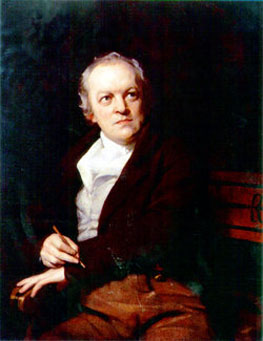
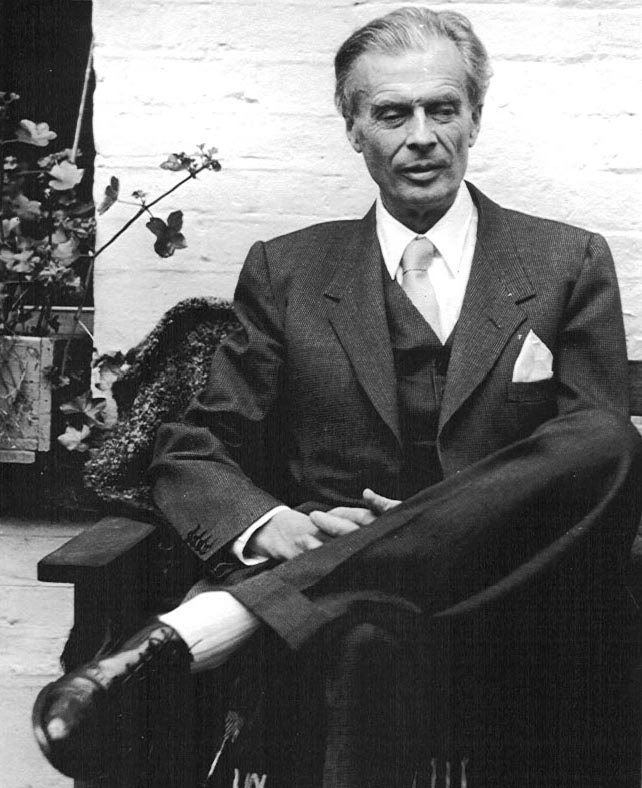

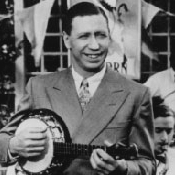
.jfif)


.jpg)



.jfif)
